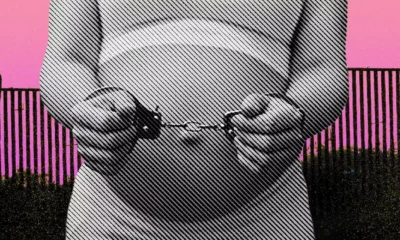Business
Maryland Pioneers Cannabis Justice, Setting a New Standard

In a historic move nearly three weeks ago, Maryland Governor Wes Moore pardoned 175,000 marijuana convictions across the state. This groundbreaking decision applies to all misdemeanor convictions related to marijuana possession or paraphernalia, a scale of pardoning unprecedented in the United States. Moore hopes this initiative will inspire other states to take similar actions.
Maryland’s legalization of recreational cannabis in 2023 marked a pivotal shift in its approach to cannabis-related justice. Unlike states such as Colorado and Washington, which have fully legalized cannabis for years but taken minimal steps to address existing convictions, Maryland is taking robust action.
Back in 2022, eight years post-legalization, Colorado Governor Jared Polis pardoned 1,300 individuals on possession charges of up to two ounces of marijuana. Washington Governor Jay Inslee followed suit, pardoning approximately 3,500 people with misdemeanor marijuana convictions nearly seven years after legalization. Meanwhile, Arizona continues to lag, having issued no state-level pardons despite legalizing recreational cannabis over two years ago.
President Joe Biden, in late 2023, pardoned thousands of marijuana-related charges, though this applied only to federal convictions, leaving state officials to resolve state-level convictions.
The ongoing impact of cannabis prohibition often goes unaddressed. For Governor Moore, cannabis legalization highlighted the disparity between a lucrative industry and the societal damage inflicted by the “war on drugs,” especially on communities of color.
“Legalization does not erase the fact that nearly half of all drug arrests in Maryland during the early 2000s were for cannabis,” Moore stated at a pardoning ceremony on June 17. “It doesn’t erase the fact that Black Marylanders were three times more likely to be arrested for cannabis than white Marylanders before legalization. It doesn’t erase the fact that having a conviction on your record complicates everything from housing to employment to education. Those arrested for cannabis decades ago still bear those convictions today.”
Moore’s address serves as a stark reminder that while legal progress has been made, achieving full cannabis justice requires ongoing, holistic efforts. “We cannot celebrate the benefits of legalization if we do not address the consequences of criminalization,” Moore continued. “Undoing decades of harm cannot happen in a day, but we will persist.”
Tags: #Maryland #sets #precedent #cannabis #justice


















